Weekly Hits is another browser redirect malware. It is aimed to promote weeklyhits.xyz – a rouge search engine. This threat can show unwanted ads and cause frequent and undesired redirection on suspicious websites.
These types of forced browser redirection is a sign of browser hijacking malware. Weekly Hits infection is mainly used to promote suspicious sites and services to make illegal profits. It can be the beginning of major damage because it can bring several other dangerous threats to your computer.
If you want to get rid of this nasty malware, then this guide can help you. In this article, you can find all the information you need to know about this browser hijacker virus, how it gets on your pc, its harmful effects, and finally removal instruction.
Some threats keep getting back on the PC if all associated files are not removed. So you are advised to use a powerful Malware Removal Tool to run a thorough scan of your PC and delete all threats at once.
Compatible with: Windows XP/Vista/7/8/10/11
What is Weekly Hits?
Weekly Hits is a deceptive computer program recognized as a browser hijacker created by cyber crooks for making an illegal online profit by manipulating users’ web browsing activities. This notorious threat is designed to show sponsored search results and annoying ads on the victimized machine. It has the main intention to promote web traffic on dubious websites for which its creators earn profit.

This fake search engine looks very legitimate at first look but soon users find out its true nature when it starts doing its malicious activities. Many people have complained about the Weekly Hits virus. It invaded their system and infected the main browser. It serves loads of annoying ads and redirects their searches to harmful websites. Weekly Hits does not only destroy your web browsing experience but also exposes your system security and privacy by redirecting your browser to questionable websites.
Working of Weekly Hits
Weekly Hits is a fake search provider. Well, it may look like a genuine search engine that claims to enhance your web browsing experience by providing the best and quick search results for you. It could infect your main browser and replace your regular homepage and search engine with its own URL. However, in context to what it claims, Weekly Hits just takes advantage of your online activities for its own profit.
Programmed by vicious cyber crooks the only motive of this vicious browser hijacker virus is to earn revenue for its creators. As soon as it gets inside your machine, it quickly infects your entire system and starts its deceptive activities straight away. If your computer is infected by this nasty virus then it would not take long for other threats to get inside your system and damage your entire system. Hence if you see this nasty Weekly Hits virus on your system then do a complete scan of your system and try to eliminate this malware immediately from your PC.
How does your PC get infected?
Weekly Hits is such a cunning malware infection that can easily get inside the targeted computer without even users’ permission or consent. Creators of this malware use various different tricks to spread this infection. It can get downloaded on your PC bundled with free third-party programs or software and silently get installed in the background without notification.
Weekly Hits could also spread through cracked software or pirated files that users download from Torrent sites. Visiting questionable sites or clicking on suspicious links, pop-ups, ads, push notifications and annoying advertisements on the browser could bring this threat. Sharing files on an unsafe network and connecting any infected USB drive to your system could also bring this threat to your PC.
Threat Analysis
| Name | Weekly Hits |
| Type | Browser Hijacker |
| Threat Level | High (source to distribute other harmful threats). |
| Symptoms | Users can experience lots of pop-up ads, push notifications, and forced browser redirection. |
| Distribution | It could be distributed through spam emails, bundled freeware, porn, or torrent sites. |
| Damage | It can modify browsers, show unwanted Ads, steal personal info and bring other threats. |
| Removal | Download SpyHunter 5 Anti-Malware |
How much harm it can do
Don’t make the mistake of taking Weekly Hits virus lightly. This dubious threat can hijack all your web browsers such as Firefox, Chrome, Opera, Mozilla, Safari, etc., and start controlling your entire online activities. Due to this vicious browser hijacker virus, users will experience frequent browser redirection issues. Moreover, it also interrupts your online activities by promoting several unwanted ads and pop-up messages. It even downloads various other threats and harmful browser extensions, add-ons, etc. on your machine without your knowledge.
Weekly Hits virus could also disable your anti-virus and firewall program to stay undetected on your system for a long time. It can modify your DNS settings and create new registry entries to complicate its removal. The worst thing about this threat is that it may steal and share your sensitive information with hackers. It can collect your IP address, geolocation, saved passwords, credit card credentials, and many more. These details can be used to show personalized ads or shared with hackers. You can become a victim of cyber fraud or identity theft and then you will not be able to undo the damage.
Elimination of this threat is important
As you know that your computer is infected by this Weekly Hits virus and it can cause several problems for your PC. It is better to stop this infection before it makes any permanent or irreparable damage. It might be not so easy to remove this infection completely. This nasty virus creates lots of changes on infected PC and creates new registry files and shortcuts. These files can help this threat in getting back on your system. We have created a guide that can help you completely remove this virus. You should try combining Automatic and Manual removal methods to get rid of Weekly Hits virus from your PC once and for all.
How to Remove Weekly Hits Virus
Please Bookmark This Page by pressing the {ctrl+D} button or print it out on paper before you start the Manual Removal because you may need to restart your PC or browser.) Attention! For the safety of your system, please confirm a few things before you begin Manual Removal:
- You have done this before, which means you have experience in removing the virus manually;
- That you know your way around PC and all necessary processes and applications;
- You know about Registry entry and the Serious repercussions of any mistake;
- Make sure you can reverse any mistake made during manual removal.
If you don’t attain any of the above standards, then manual removal could be a very risky idea. We recommend you download the Automatic Malware Removal Tool to find and delete threats from your PC.
Compatible with: Windows 11/10/8/7 (32 Bit and 64 Bit)
Start PC in safe mode with networking
- Press Windows Key + R buttons together on the keyboard.
- Type msconfig in the Run Box then click the OK button.
- Click on the Boot tab to open the System configuration window.
- Choose Safe Boot, check the network box, Click Apply, and press the OK button.
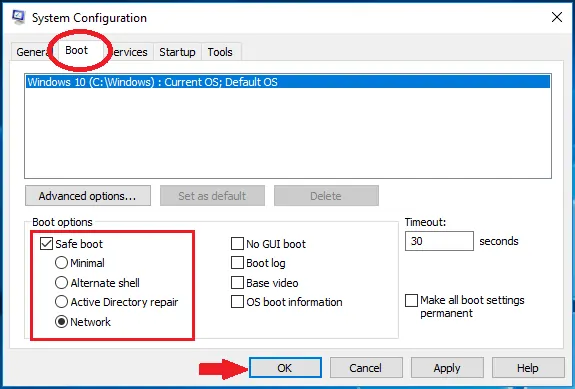
Kill Malicious Process From Task Manager
- Press Windows Key + R buttons together on the keyboard.
- Type taskmgr in Run Box and then click the OK button.
- Find Weekly Hits related or any malicious process.
- Now right-click on it then click End process.
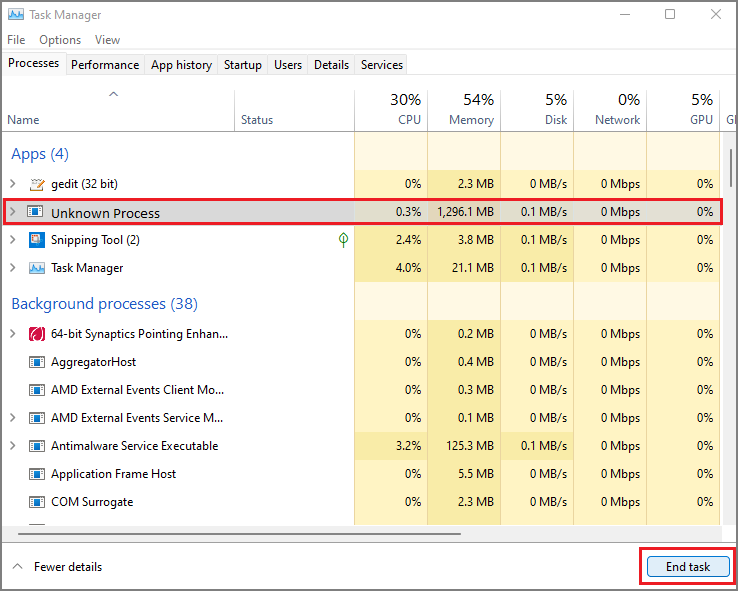
Uninstall Weekly Hits from Windows PC
- First of all Press Windows Key + R buttons together.
- Type appwiz.cpl in the Run box and then click the OK button.
- Now Programs and Features windows will appear on the screen.
- Find and remove all Weekly Hits related or malicious programs.
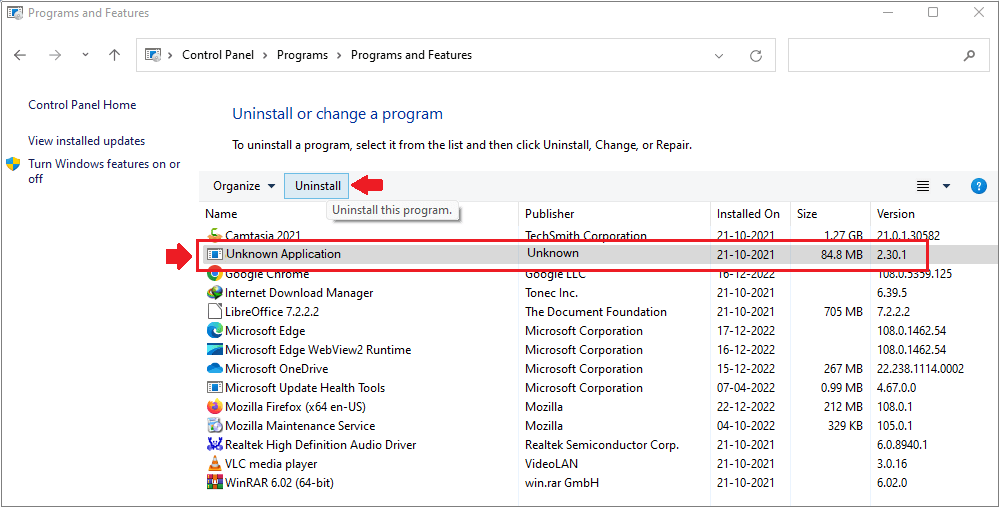
Remove Virus related Windows Registry entries
- Press Windows Key + R buttons together on the keyboard.
- Type regedit in Run Box and then click the OK button.
- Registry Editor will open, then press CTRL +F buttons together.
- Now type Weekly Hits and then click on Find Next button.
- Find all the related entries and delete them one by one
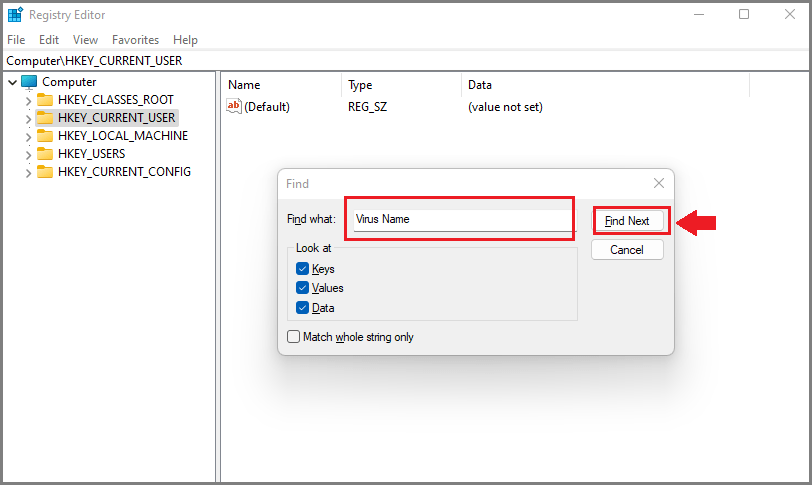
Warning: Meddling with Windows Registry files might not be a good idea if you don’t have advanced knowledge about registry files. Deleting the wrong file can break down your entire system. Proceed at your own risk, or just skip this step. You can choose the Automatic Removal method and avoid all the problems.
Compatible with: Windows 11/10/8/7 (32 Bit and 64 Bit)
Remove Weekly Hits From Browser
Most of the time, threats like this make several changes to the browser which helps it to track victims’ online activities. It is important to completely remove the virus from the browser or it may come back. Follow the below steps to remove this infection from your browser.
Delete Malicious Extensions From Browser
Many spyware now has browser hijacking capabilities to show ads, offers, alerts, notifications, or steal the personal information of the victim. Follow the below steps to remove malicious extensions from your browser.
Remove Weekly Hits From Google Chrome
Note: Type or copy-paste – chrome://extensions in the URL bar of Google Chrome then press ENTER button to open the extensions page directly or follow the below steps.
- Open your Google Chrome browser, and click the Menu (⋮) option from the upper right corner.
- Select More tools then click on the Extensions option to find all installed Extensions on chrome.
- Choose virus related extensions then click the trash can icon to remove them completely.
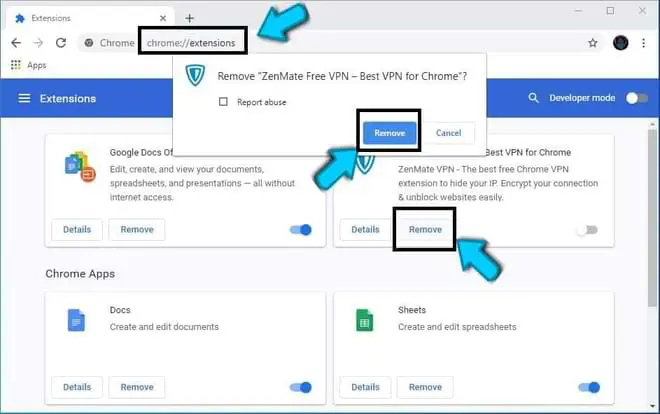
Eliminate Weekly Hits From Mozilla Firefox
Note: Type or copy-paste – about:addons in URL bar Firefox then hit ENTER button to open the extensions page directly or follow the below steps.
- Open your Mozilla Firefox browser, and click on Menu (☰) option from the upper right corner.
- Select Add-ons option from the drop-down menu of the list.
- Choose the Extensions option to see all installed extensions on your browser.
- Choose virus related extensions then click on the Remove button.
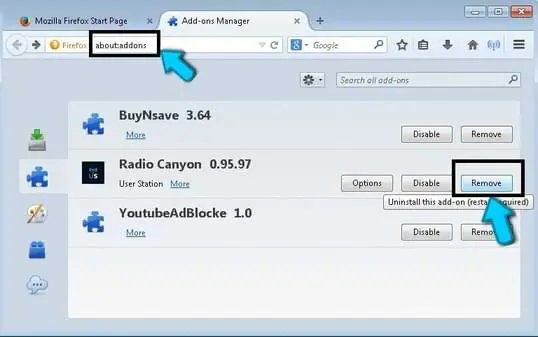
Remove Weekly Hits From Microsoft Edge
- Open your MS Edge browser, and click on More Tools (⋮) option from the upper right corner.
- Select the Extensions option from the drop-down menu to see extensions on your browser.
- Choose virus related extension then click on Uninstall button to remove it.
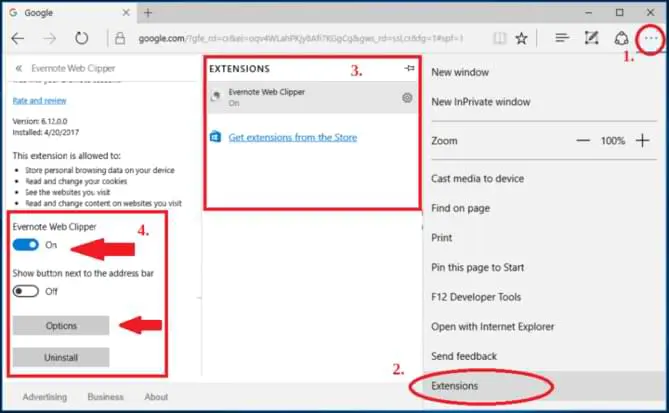
Remove Weekly Hits From Apple Safari
- Open your Safari browser then tap on the Preferences option from the Safari menu.
- Open the Extensions tab, find virus related extensions then click Uninstall button.
- Finally, again click the Uninstall button to remove the extension completely.
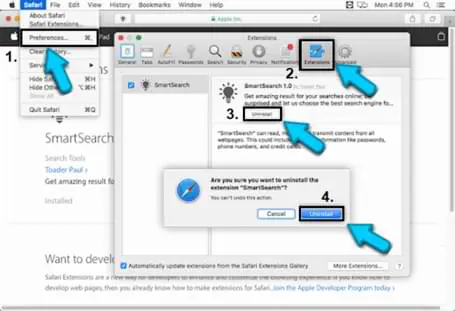
Delete Weekly Hits From Internet Explorer
- Open your Internet Explorer then click on Menu option from the upper right corner.
- Select the manage Add-ons option from the drop-down list to see the installed extension.
- Find all virus related or malicious extensions and click on Disable button to remove them.
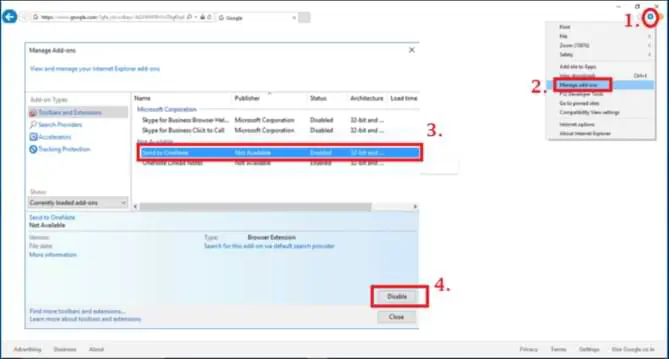
Reset Browser Setting to Default
Once you remove Weekly Hits from your browser, you might want to reset the browser to default settings to reset any changes made by the virus. Follow the below steps for that :
Google Chrome Web Browser Reset
- Open Google Chrome, click on Menu (⋮) then select the Settings option.
- Scroll down to the bottom, and hit the Show Advanced settings option.
- From Reset and clean up click on Restore settings to their original defaults.
- Finally, click on the Reset Settings button to reset your chrome browser.

Mozilla Firefox Browser Reset
- Open your Mozilla Firefox browser, click on Menu (☰) option and select the (?) icon.
- Click on the Troubleshooting Information option from the drop-down menu.
- Then press the Refresh Firefox button and give confirmation.
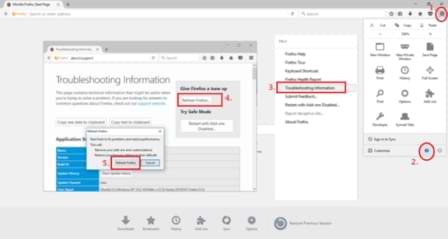
MS Edge Browser Reset
- Open the MS Edge browser, click on More Tools (⋮) option, and select settings.
- Click on Choose what to clear Option, choose the first three options then click on the Clear button.
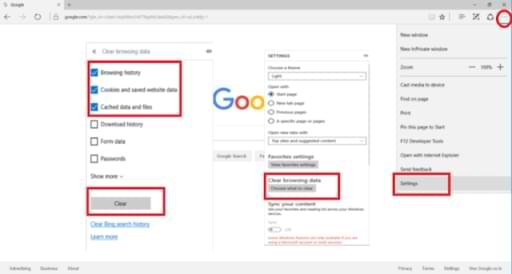
Reset Safari To Default
- Open your Safari browser, tap on the Safari menu, and select the Reset Safari option.
- Now check all the boxes and then finally click on the Reset button.
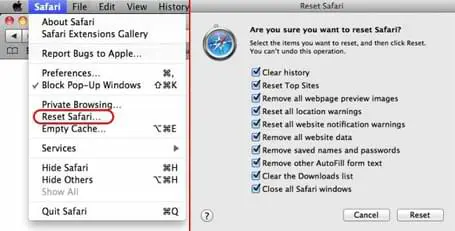
Reset Internet Explorer Browser
- Open your Internet Explorer then click on Menu icon and hit Internet options.
- Visit the Advanced tab then click the Reset button.
- Check the Delete personal settings option, and hit the Reset button.
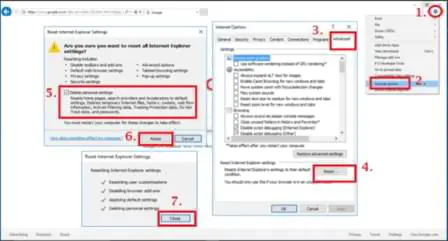
How to Enable Browser Protection
Follow the below steps to enable built-in dangerous site protection in your web browsers to block threats like Weekly Hits. You can follow the same steps if you want to stop the malware protection on your browser.
Google Chrome – Dangerous Sites Protection
- Open your Chrome web browser, type
chrome://settingsin the URL bar, and press Enter. - Got to bottom of the page and select the “Show advanced settings” option.
- Look for the Privacy and security section then click on Sync and Google services.
- Now turn on the Safe Browsing (Protect you and your device from dangerous sites) option.
Safari Browser – Change Security preferences in Safari
- Open your Safari web browser, then tap on the Safari menu and select Preferences.
- Now you have to open the Security options on your Safari browser.
- Check Warn When Visiting a Fraudulent website box from the Fraudulent Sites section.
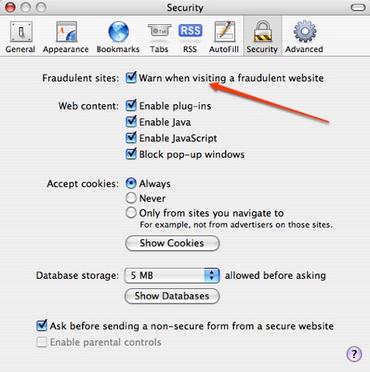
Mozilla Firefox – Block Attack Sites and Web Forgeries
- Open your Firefox web browser, click on Menu (☰) and select Options from the list.
- Now click on the Security option and then select the following items:
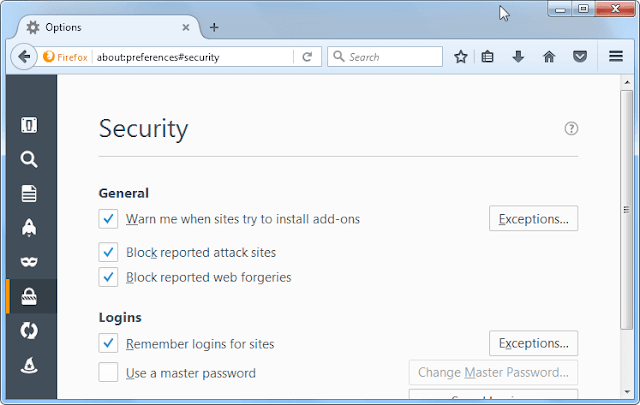
- Warn me when sites try to install add-ons
- Block reported attack sites
- Block reported web forgeries
Edge Browser – Activate SmartScreen Filter
- Open your MS Edge web browser, and click on More (⋮) icon from the upper right corner.
- Click on the Settings option from the Edge menu drop-down list.
- Scroll down and find the View Advanced Settings option then open it.
- Turn ON the “help protect my PC from malicious sites and downloads with SmartScreen Filter” option.
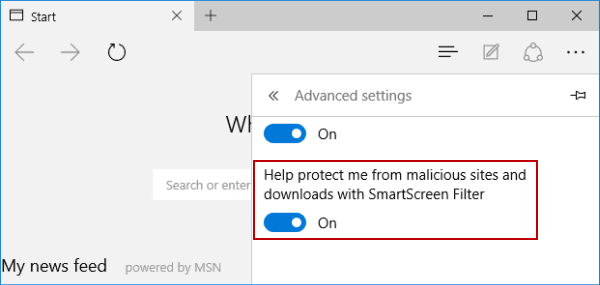
Internet Explorer – Activate Microsoft SmartScreen Filter
- Open your IE web browser, then click on Menu icon and hit Safety options.
- Now click on the SmartScreen Filter option from the drop-down list.
- Turn on SmartScreen Filter and restart your browser.
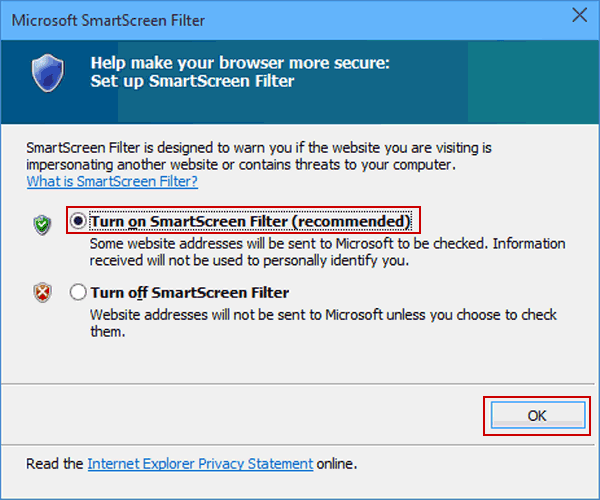
If you made these settings on your browser then phishing and malware protection on your browser is now active. But it does not mean that your computer cannot get infected by threats. These settings may block some dangerous and suspicious sites but there are other ways through which hackers can target your PC. So you must download a powerful Anti-Malware application on your computer that provides real-time protection to ensure your system security.
Automatic Weekly Hits Removal Guide
As you already know, Weekly Hits is a notorious and cunning malware that is not hard to remove easily by any user through manual means. This virus can keep coming back on the infected computer through files and shortcuts or settings that it has already created on your machine. Removing all those at once is the only way to get rid of this infection and stop it from getting into your system ever again.
So the best way to remove Weekly Hits effectively is to use a powerful Automatic Removal Tool and save your time and efforts. This software is a well-trusted and very powerful anti-malware program that can detect all hidden threats like Trojan, Ransomware, Worms, Spyware, Rootkits, and many others. It also provides 24X7 customer support and one-on-one Spyware HelpDesk support for Custom Malware removal. Advanced System Guard feature detects and removes threats in real time. It has a very User-Friendly Interface and regular Malware updates make it most effective against the latest malware attacks.
How SpyHunter 5 Anti-Malware Works
- First, you need to click on the below download button to get the software.
Geek’s Recommendation
Sometimes threats keep getting back on the machine if all associated files are not removed. So you are advised to use a powerful Malware Removal Tool to run a thorough scan of your PC and delete all threats at once.
Compatible with: Windows 11/10/8/7 (32 Bit and 64 Bit)
- Then double-click on the installer you downloaded to install the program.

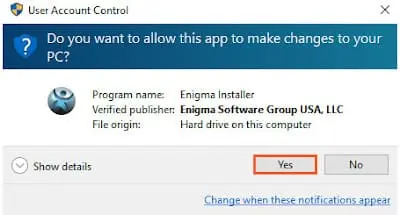
- Launch the Anti-Malware application and click on the Start Scan Now button.
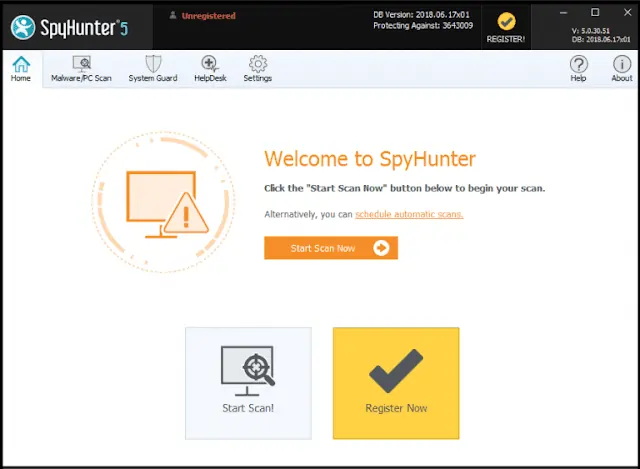
- The software will scan your PC for all hidden threats and viruses on your system.
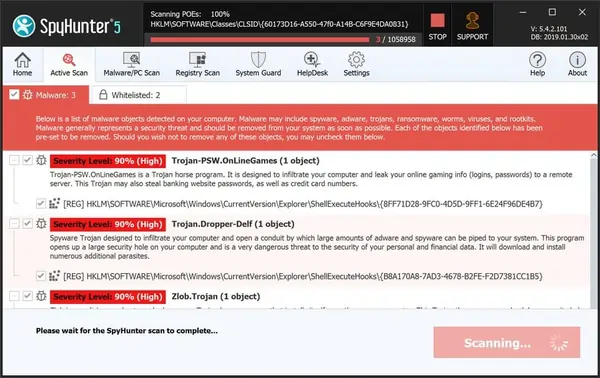
- Click on the Next button to see results and delete Weekly Hits and other threats.
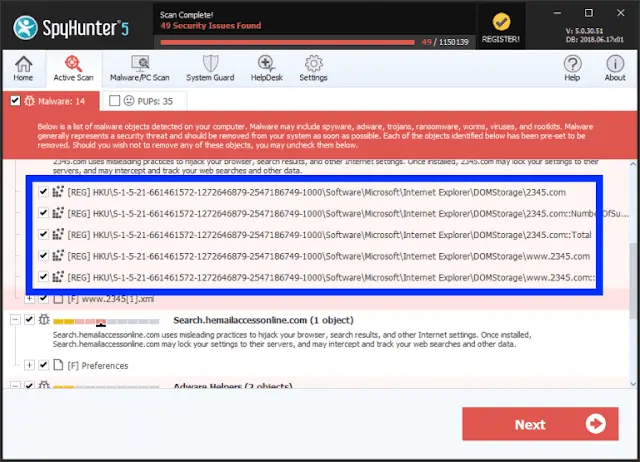
Tips To Prevent Similar Threats in Future
- Use a good anti-virus, be it a free version but don’t use cracked security programs.
- Make sure that your Windows firewall is active, so it can block upcoming threats.
- Keep your Windows OS and other programs updated to avoid vulnerabilities.
- Download updates only from official websites, don’t use suspicious sites.
- Never download and install pirated software, games, or illegal patches on your PC.
- Do not open spam emails from an unknown sender and scan all attachments before opening.
- Never download freeware third-party programs from unreliable sources or websites.
- Avoid connecting your PC to unsafe public Wi-Fi to protect your privacy.
- You can also use a VPN to spoof your connection and avoid malicious sites.
- Create a system restore point on your system for security purposes.
- Keep a backup of all your important files to avoid data loss.
Some threats keep getting back on the PC if all associated files are not removed. So you are advised to use a powerful Malware Removal Tool to run a thorough scan of your PC and delete all threats at once.
Compatible with: Windows XP/Vista/7/8/10/11

Leave a Comment